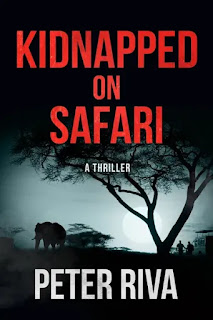By Parker Palmer
Berrett-Koehler
2018
198 pages Spiritual
Parker Palmer, author, poet, visionary, has been a part of
the spiritual growth movement for almost forty years. I first met him when we
read The Courage to Teach in an education group. Then I read A Hidden
Wholeness in the church library. So, when my
spiritual growth book club at church chose On the Brink of Everything
as our January book, I was so pleased. The
group met today and the discussion was outstanding.
Parker Palmer is 80 years old—the same age as my husband—and
I know how my husband felt on his 80th birthday! Palmer believed he
had at least one more book in him, so he created a compendium of essays he has written
through the years. In On the Brink of Everything, he explores how he is responding to this new era in
his life, and he is not hesitant to express everything he is feeling--the good
and the bad. The essays and poems that he chose to include fit the several
themes outlined at the beginning of each section.
I embrace his feelings about aging. He says, “I like being old
because the view from the brink is striking, a full panorama of my life—and a
bracing breeze awakens me to new ways of understanding my own past, present,
and future.” I honor his struggle with depression and his ability to speak
about it with humor and understanding. I appreciate his candor when he
announces his disdain for the current president in an essay called “The Soul of
a Patriot.” I agree with his desire to reframe aging “as a passage of discovery
and engagement, not decline and inactivity.”
I love how he wove his love of nature into every chapter of
his book. I could very much relate, because I am finding that as I am aging, I
love to just sit and observe the natural world. I love taking walks with my
grandchildren and pointing out the little pieces of nature that could so easily
pass us by. Besides that, Palmer loves to hike and canoe in the Boundary Waters
of Minnesota—part of the world where I grew
up.
I enjoyed so much the self-deprecating humor with which he
faces life—except for the righteous anger with which he deals with our broken
political system. A lot of our discussion yesterday at book club was about people's fear
of “the other.” His essay entitled “In Praise of Diversity” addresses this
issue head on when he quotes Jean-Paul Sartre: “Hell is other people” and then
goes on to say: “My hell is much more specific. It’s a place populated
exclusively by straight white males over fifty who have college degrees and
financial security—which is to say, people like me. For me, variety is more,
much more, than the spice of life. It’s a basic ingredient of a life lived
fully and well."
One of the best parts of On the Brink of Everything
is the inclusion of a great deal of poetry, both Palmer’s and others. He closes
each section with one of his poems—all beautiful, all meaningful. Several years
ago Palmer began a collaboration with the singer Carrie Newcomer. I heard
Newcomer in concert several years ago, and for some reason, I had not
remembered that she frequently composed works using Palmer’s poetry for the
lyrics. Her musical partnership with Palmer can be found here.
This is an easy book to read in small bursts, but I suggest
that you sit down with a pencil because you will find yourself underlining
passages on nearly every page. The Publisher’s Weekly
review closes with this astute observation; “Warm, generous, and funny, this
impassioned book invites readers to the deep end of life where authentic soul
work and human transformation become pressing concerns.”









